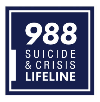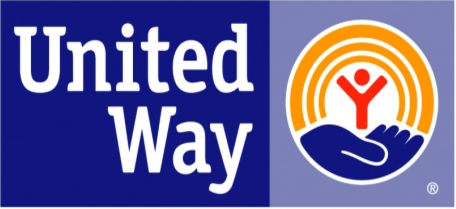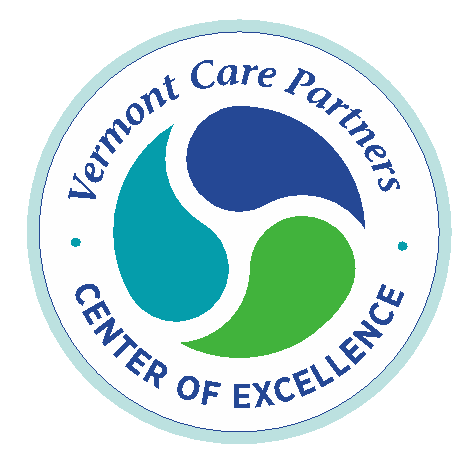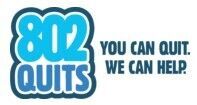
Meet Sarah, Emergency Team Clinician
What do you do?
As an emergency team clinician, I do a lot of different things! I work some daytime shifts and some nights and weekends. Most often I meet with individuals who are in crisis to get them appropriate care. That usually means doing assessments, safety planning, and coordinating with their other care providers. I talk to clients on the phone, see people at the office, and in the Emergency Department at Porter Hospital. Sometimes I also do mobile outreach, which means I see people in the community.
Also I consult with psychiatric units and crisis bed programs, as well as clinicians and psychiatry teams, both at CSAC and just about anywhere in the state. I also talk every day with a variety of community supports and services, like H.O.P.E., family physicians, WomenSafe, and a host more. One of the things I like about this work is that I get to observe the whole system of mental health, addiction recovery, and medical care, especially when I work nights and weekends. It’s fascinating.
Anyone in Addison County can call the Emergency Team. We are here 24 / 7 /365. Any person can find themselves in need of emergency mental health services. Something happens that overwhelms our ability to deal with everyday life. Sometimes there are social stressors making things worse, like poverty, homelessness, or domestic violence and then I assist people in connecting with resources to address these things. Some people I see are at risk of harming themselves or others, but many are not.
What’s a typical day like?
There is no typical day. It could be everything is happening at once or it could be really calm. Some days you might actually get to catch up on paperwork! Most days we have occasion to consult with our psychiatry team or with other clinicians regarding complex cases.
A more intense day involves a lot of direct client care and situations that carry high safety concerns. Complicated situations often involve contact with many different players—family, friends and other service providers. This can be challenging and time-consuming but really satisfying when things come together for someone and we are able to help stabilize a crisis.
On a day shift I would typically start by checking voicemail and email and then logging into the emergency team’s alert system to see what happened on the overnight shift. There are often follow up phone calls or check-ins that need to be done immediately. Porter Hospital will call if they’ve admitted someone who needs to be assessed for safety or mental health issues. Various community members and clients who are in crisis will call in for information or to request an emergency appointment or about someone who is struggling or they fear is at risk of suicide. Sometimes more than one crisis call happens at the same time and then I have to triage and use problem solving skills to be as effective as possible in a small window of time. I might get called into the field for someone who needs in-home support when coming to the agency is not an option.
The last shift I worked was a weekend shift. The beautiful thing about the weekend is that I get to have time to myself while I’m on call. If no one needs me, I can follow my normal routine, as long as I’m not more than 30 minutes from the hospital and available by cell phone. Last weekend, I woke to a call at a pretty early hour – someone who was struggling with depression. After we talked a bit and made a plan for the person’s day, I determined it was pretty low risk and made a plan to check in again with that person later. Then I made breakfast with my family, ate with them and got on with some chores. I was paged a few times and took some calls. Later, I was called to the hospital to assess someone in the Emergency Department. I talked with the patient’s family about safety planning, options for other crisis services and in-patient services and made a plan for the person to follow until they could get to their provider. I got a full night’s sleep both nights I was on call that weekend! That doesn’t always happen, but it’s nice when it does.
What do you need to do this work?
The most important skill for this job would be flexibility, so that you can adjust quickly as things unfold. Often you have to drop what you’re doing or change your approach or speed up your work pace. You also need to be able to ‘keep your cool’ so that you can stay calm and consistent through what can sometimes be a highly-charged situation and provide the best possible support to the person in crisis. You are the lighthouse of calm in those situations so it’s really important that you don’t get flustered.
You usually need a Master’s Degree in a related field such as psychology or social work, some work experience in the field, and the ability to become a Qualified Mental Health Professional (QMHP), which is a training and certification provided by the state. You certainly need a special skill set and temperament but you don’t need to be a licensed therapist.
What do the hard moments look like?
Not often, but sometimes, we have to do an emergency mental health evaluation which could result in someone being held in a psychiatric setting against their will. It’s something we don’t want to do ever but sometimes we have to if there’s a real risk of imminent danger to self or others and no other plan is safe enough. In Vermont, there are strong legal safeguards against involuntarily hospitalizing someone unnecessarily and we work very hard to find safe alternatives.
Sometimes, an individual doesn’t meet criteria for involuntary hospitalization but safety concerns still persist. I’ll try to engage that person in developing a strong plan for supports and therapy but if they choose not to, there is little we can do. It’s hard to sit with that worry, so I’d say that qualifies as a hard part of the job.
What are some of the most satisfying things you do?
Oh, my gosh, so many! When I can help someone who is experiencing a first real brush with psychiatric or emotional instability I know why I am doing this work. There’s so much stigma and not a lot of knowledge out there about mental health issues and resources. It’s satisfying to give someone information about what’s happening and what the next steps could be and what resources are available. I have seen the relief in their eyes and that’s a really great feeling.
Anything to add?
This job asks for a lot of flexibility, but also provides me extraordinary flexibility. I can balance working with my family responsibilities and my graduate program. It’s also tremendous experience that deals with some of the most difficult elements of being a mental health professional. Crisis is one of the things that people fear most but that’s what I deal with all the time, so I gain a lot of confidence professionally and personally. The opposite of crisis is building stability with caring and compassion. The CSAC Emergency Team is the strongest, most colorful, most supportive team I’ve ever worked with, in any setting. There’s a strong sense of camaraderie and family with a group who sees a lot of darkness but also courage and resiliency. Here anyone with compassion and a sense of humor will go far.





